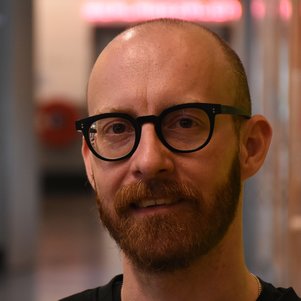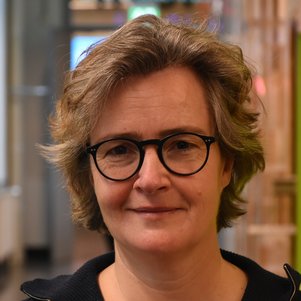Diversiteit en Inclusie 2.0: een interview met het BK D&I Team
Vanaf februari 2023 legt Roberto Rocco de functie van Faculty Diversity and Inclusion Officer neer, om opgevolgd te worden door Robert (Bob) Gorny. Samen met Cécile Calis in de nieuwe functie van Community Officer zullen zij als team bijdragen om van BK een omgeving te maken die diversiteit en inclusiviteit in zowel structuur als functioneren bevordert. Wij kijken graag met hen terug op de afgelopen twee jaar en kijken vooruit naar de komende periode.
Interview
Roberto, two years ago — in addition to your work as a researcher — you stepped into our faculty as a D&I officer. Why did you apply for this position at the time?
Roberto Rocco: I was appointed D&I Officer just before the pandemic hit, as an experiment. BK was one of the first faculties to appoint an officer, but we already knew all TUD faculties would have a D&I Officer. It took us long enough to formalise the centrality of diversity to education, although many colleagues and students already dealt with issues of diversity and inclusion in their education and research. Diversity is of course not new to Bouwkunde, but it was felt that we needed to start discussing it in a systematic way.
Did you have a personal motivation?
RR: My own interest in diversity comes from my own experience as a migrant in the Netherlands and as a Brazilian scholar working in a Dutch university. I felt some issues of diversity very personally. But my interest also stems from my education as a planner. In urban planning and design, it is well established that diversity is one of the central pillars of good urbanism. After all, we are designing cities for a variety of people who are oftentimes very different from ourselves.
Can you give a (small) list of the initiatives, events, discussions, or other things you were able to bring about or bring attention to in those three years?
RR: I managed to set up of a working group of staff and students as well close collaboration with the TUD Diversity Officer. Besides that we organized a series of small events on Decoloniality, Gender Bias, Education, Lijst Beta Discussion. Also two BK Talks were organized in partnership with Javier Arpa “Perspectives on Urbanism of Diversity” (September 22), and “Democracy, autocracy and truth forming (and what architecture’s got to do with it?)” (June 2). I also initiated the Faculty’s Diversity Statement (which is still ongoing). With support from Kwaliteitsafspraken, I helped established the Delft Design for Diversity Thesis Award (2020–2022) a pilot with BK, TBM and IDE (2023) and a Teachers’ Diversity Training, in partnership with TBM. Other events include a series of lectures on issues of diversity, inclusion, and equality online and face-to-face, epically tailored for educators (2023). And finally, unrelated to the diversity office, but in the same vein of efforts, my colleagues Amy Thomas, Maria Novas and myself organized a symposium, supported by the Delft Design for Values institutes, on Teaching Design for Values which resulted in an open book publication. In this publication we invited colleagues from around TU Delft and further afield to reflect and describe what it means to teach design for values.
This is quite a long list of achievements. Is there anything you are most proud of, or perhaps something you are frustrated about, that you did not expect would take so much time and energy?
RR: BK is a large ship, and it deserves and needs more than one person taking care of diversity. We are all leaders at some point in our lives: we must all lead by example and put diversity and inclusion at the centre of design for people. I am happy that I am going to be succeeded by Robert Gorny as D&I Officer and Cécile Calis as Community Officer. This is a new and great combination and I wish I had thought of that myself: we need everyone on board to change some of the structural issues of diversity and inclusion in our school, but also in the wider world of design, planning and engineering.
Robert (or Bob as you wish to be named), this position of faculty D&I officer is still fairly new; you only have one predecessor. Why did you apply to fill the position for the next two years?
Robert Gorny (he/they): As an out-and-proud queer person, questions around accommodating difference have always shaped my outlook on teaching, tutoring, coordinating, and extracurricular activities. But over the past years, there have been several occasions through which I became more and more involved in ongoing discussions, and an EDI-themed Research Day organized by Janina Gosseye around theory fellow Naomi Stead, an expert on issues concerning equity, diversity, and inclusion (EDI) in architecture.
Organizationally, this work first consists in creating inclusive structures for inviting, friendly, open-minded exchanges that help create an awareness around different experiences and positionalities, and embrace emancipatory forms of (un)learning and working together. In applying for the function as diversity officer, I was hoping to be able to do something similar, in coordinating existing efforts towards a more integrated approach to make BK an environment that fosters diversity and inclusivity in both structure and operation.
Did the faculty give you a specific assignment or are you setting the path yourself?
RG: Well, the interview assignment was to outline a strategic vision for the coming years. The vision presented, was however not my personal vision since it is fully based on a collective vision, and earlier calls to action. My vision only tried to channel or coordinate these proposals to an integrated package of interrelated action points. These also need to be coordinated with TU Delft’s larger Diversity Board where I represent our faculty together with the other faculties’ Diversity Officers, where the discussion mainly revolves around governance structures and incentives to even achieve 25% female professors. Luckily, our faculty is one step further, and we must address some more complex issues.
Here the Officer’s general role is to act as an intermediary between the larger Board, who advises the Dean, Management Team, HR, the educational directors and coordinator and department chairs on related issues, in feedback with associations and individual members of our (non)academic staff and student bodies.
Roberto has gotten off to a decent start in recent years, where do you step in and is there a particular focus of topics or approach that you want to take forward in the coming years?
RG: Indeed! As the first Diversity Officer, Roberto has made several crucial steps mentioned above, especially concerning the first formalization of EDI in the faculty’s structure and operation. As said before, my primary ambition in continuing these strides will be to bundle those efforts towards an integrated approach to ongoing questions of overcoming gender inequalities, actual disparities in numbers and fte’s, and related perceived differences regarding the roles and institutional status of women, along with what many perceive as a wider lack of representation across teaching staff and materials. To do that, I want to pursue a much more intersectional vision, as Roberto addressed. I like to create more awareness, and tools that help embed these issues with our curriculum and workplace culture on a practical level, in using not only ‘epistemo-diversity’ but also ‘techno-diversity’.
The largest ambition would be to extend the D&I Steering Group into a larger task force with EDI-related researchers and students, to help bundle all ongoing efforts in integrating EDI further in the curriculum and teaching-/workplace-culture. This could be a first step towards establishing an inter-departmental Lab or possibly even a flagship project. This vision includes related ambitions to try to establish a new professorship on inclusive design; funded PhD positions on EDI-related topics by candidates who identify as LGBT2QIA+ and/or belong to marginalized/disadvantaged groups; and a wider open-access publication series with BK books.
Cécile Calis, your position of "Community officer” is an entirely new function. Can you explain how that came to be, and what it is?
CC: Since my coming out in 2012 I have been part of the board of True U, the LHTBQ+ network for TU Delft employees. Later, I was chair of this relatively new network for two years. I experienced it was not that easy to maintain or expand the network, maybe because of time-pressure of possible participants, or the assumption that it’s no issue since we are living in the tolerant Netherlands and people presume there are not so many problems. Therefore, I decided to have open board meetings, during lunch, at the different faculties and be very visible during these lunches. In this way students and staff could just approach us with their issues or just simply notice that the network existed. During these lunches I had really inspiring discussions, also with people with different viewpoints and I learned a lot from these conversations. The lunches are still part of the agenda of True U, apart from the other public activities.
As a chair of True-U I was asked to join the newly formed TU Delft Diversity Board. This Board is really getting shape and making steps, but I also experienced how broad, big and abstract the job can be. When the position of Diversity Officer for BK became vacant, I was attracted to the position because of the possibilities I saw to undertake initiatives to organise events within the faculty resembling these True-U lunches. To make Diversity more visible and tangible. When my interview was finished the committee came up with the title Community Officer and I was very pleased with this title since it covers much more my ambitions than that of Diversity Officer. I am also not so much involved into research as Bob is, so I am thrilled that he got his position. I think together we have more power to get things done in the faculty.
What kind of events are you envisaging, and with whom? And will they be informal social events, or centered on certain issues and thematics?
CC: First of all I want to form a small group in which I would like to invite students, supporting staff and scientific staff to set an agenda for thematic events in the coming two years. This agenda will be presented to and discussed with the MT. The main goal is to organise dinners and/ or exhibitions around specific themes within the diversity field. When the agenda is set we will form small groups with stakeholders to prepare each dinner/exhibition, to chair and to evaluate the event. Possibly with speakers from outside the faculty. I believe dinners can be inspiring stages for getting to know each other, starting dialogues and getting better informed about the subject. I specifically also want to involve people with different viewpoints to avoid a ‘Diversity bubble’ in which everybody has almost the same point of view. I realise everybody has a full agenda. Hopefully the dinners, maybe even cooking together, will inspire students and staff to join in!
More information
More detailed vision and links will be put online coming weeks where you will find the D&I mission statement.
If you like to address or discuss any points about inclusion or diversity, or like to be involved in the prospective EDI Lab, feel free to contact the Diversity Officer Robert (Bob) Gorny via Diversity-BK@tudelft.nl or the Community officer Cécile Calis via Communityofficer-BK@tudelft.nl.
If you want to read more about the open book publication Teaching Design for Values check the free download
If you are interested in the Delft Design for Diversity Thesis Award, please click here.
Read here the introduction interview with Roberto Rocco of 2021

Robert Gorny

